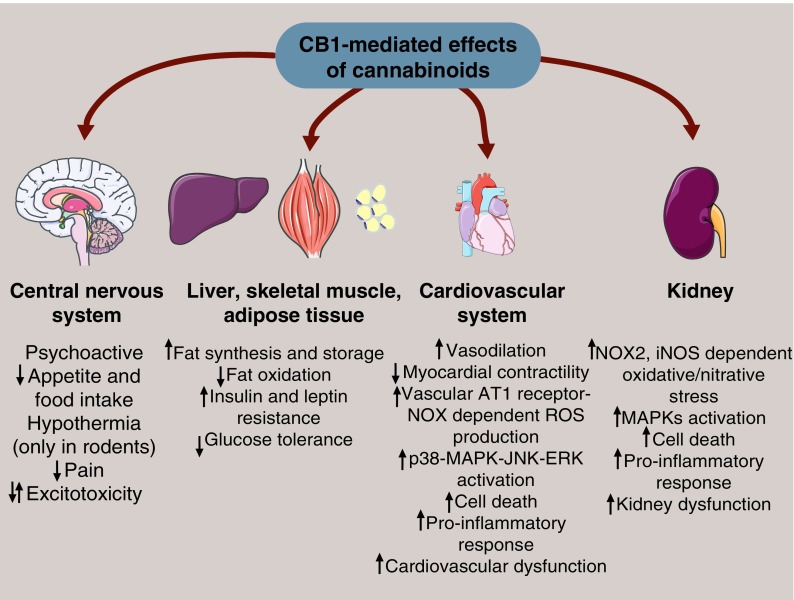FIG. 4.
CB1-mediated effects of cannabinoids in different tissues. Cannabinoids provoke multiple responses in tissues via stimulating CB1 receptor signaling. Triggering CB1 receptors in the central nervous system has psychoactive features and elicits appetite loss; hypothermia (observed only in rodents) decreases pain sensation and has multiple effects on excitotoxicity according to the cell-specific localization of CB1 receptor. Furthermore, in other organs involved in the regulation of lipid metabolism and energy homeostasis, cannabinoids trigger fat accumulation and decrease fatty acid oxidation, increase insulin and leptin resistance, and decrease glucose tolerance in a CB1 receptor-mediated manner. Moreover, the effect of CB1 receptor activation in the cardiovascular system has detrimental effects on myocardial contractility, decreases blood pressure by the initiation of vasodilation, impairs endothelial function leading to the formation and release of proinflammatory mediators, and facilitates vascular ROS/RNS production in an MAPK-JNK-ERK-mediated manner leading to cell death. Similarly, CB1 signaling in the kidney also leads to renal dysfunction by triggering NOX2 and iNOS expression that results in excessive oxidative/nitrative stress. Enhanced cell death can occur by MAPK activation leading to proinflammatory response. ERK, extracellular signal-regulated kinases; JNK, c-Jun N-terminal kinase. To see this illustration in color, the reader is referred to the web version of this article at www.liebertpub.com/ars

